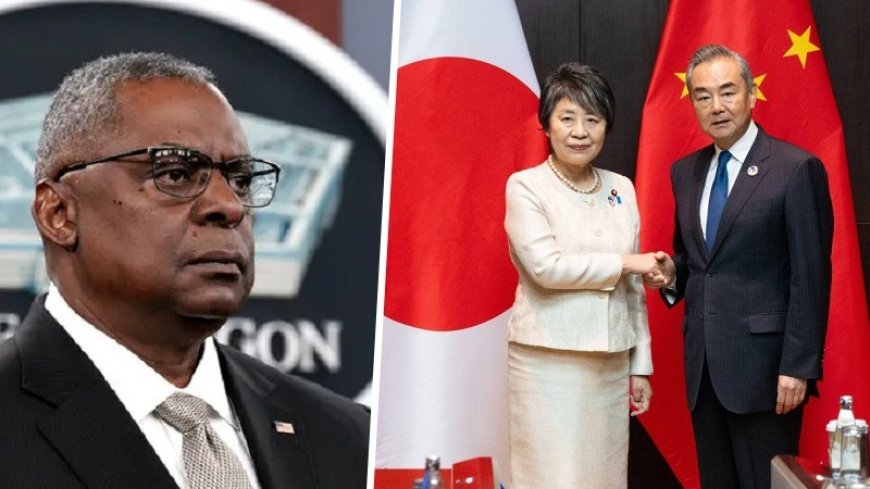Can Japan Establish a Principled Relationship with China Amid US Influence?
Reports indicate that Japan, based on the influence and pressure of the United States, is unable to resolve its main challenges with China.

Despite ongoing US intervention, Japan faces significant challenges in establishing a stable and principled relationship with China. As relations between these two pivotal Asian nations reach a critical juncture, their ability to navigate complex geopolitical pressures remains in question.
At a recent meeting in Vientiane, Laos, Japanese Foreign Minister Yoko Kamikawa and her Chinese counterpart Wang Yi tackled a range of contentious issues. Discussions included the detention of Japanese citizens in China, restrictions on food imports, and the semiconductor trade. This dialogue marks a resumption of high-level talks after years of strained relations due to territorial disputes, trade tensions, and environmental concerns such as the disposal of water from the Fukushima nuclear power plant.
Statements from Leaders
Wang Yi underscored the fragile state of China-Japan relations, warning that they stand "at a critical point: we either advance or reverse." He urged Japan to adjust its stance towards China and adopt a more positive policy. Kamikawa, in turn, highlighted the necessity of ensuring a safe operating environment for Japanese businesses and citizens in China and called for lifting restrictions on food imports and the release of detained Japanese nationals.
Strategic Economic Shifts
The arrest of a senior manager from Astellas Pharma in China has heightened concerns over foreign investment and the security of Japanese nationals, impacting bilateral economic ties. Japan, aligned closely with the United States and other G7 countries, has been working to reduce its economic reliance on China, particularly in strategic sectors. Kamikawa noted that Japan's restrictions on semiconductor exports are not targeted at any specific country and reaffirmed Tokyo's willingness to engage in constructive dialogue with Beijing.
US Influence and Regional Dynamics
The US plays a significant role in shaping Japan's foreign policy, especially in the Asia-Pacific region. America's economic and security strategies heavily influence China-Japan relations, complicating Tokyo's efforts to forge an independent path. The primary challenge for Japan is managing the delicate balance between its national interests and external pressures, particularly from its key ally, the United States.
Future Prospects
While both countries have shown a willingness to improve relations and maintain open communication channels, the question remains whether Japan can establish a principled and stable relationship with China without compromising its alliance with the US. Achieving this balance is crucial for Tokyo, as it seeks to navigate the intricate web of international relations and maintain its sovereignty in decision-making.
Japan's ability to foster a principled relationship with China amidst US influence hinges on its diplomatic agility and strategic foresight. As the global geopolitical landscape continues to evolve, Tokyo must adeptly manage its alliances and rivalries, ensuring that its national interests are safeguarded while promoting regional stability. The coming months and years will be critical in determining whether Japan can successfully balance these competing pressures and carve out a sustainable path in its relations with China.













































